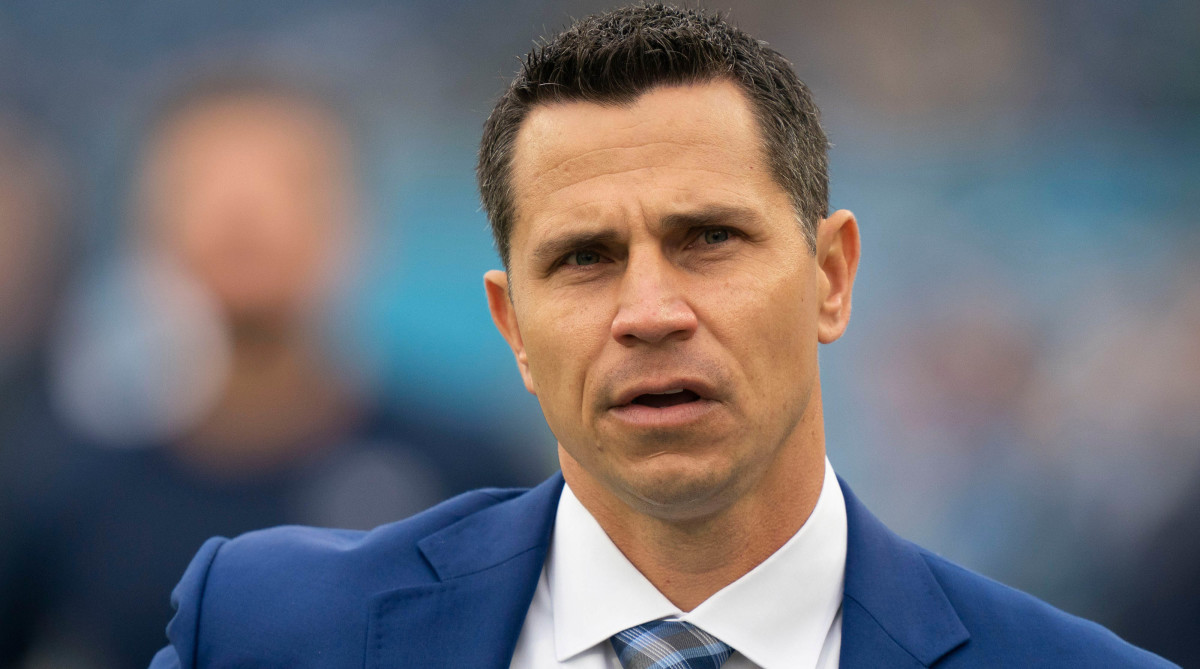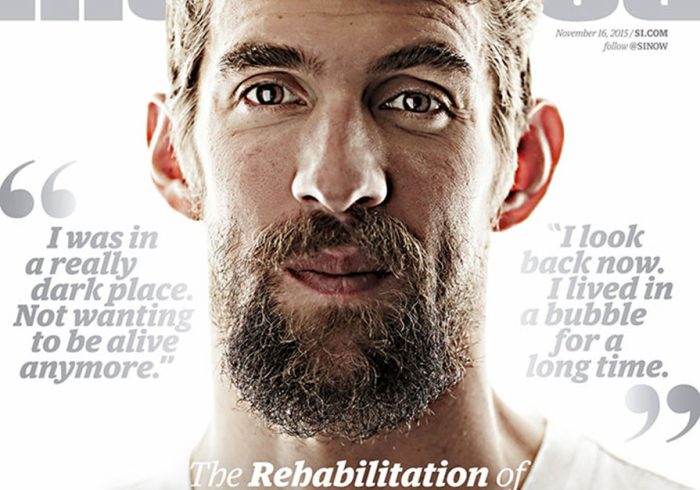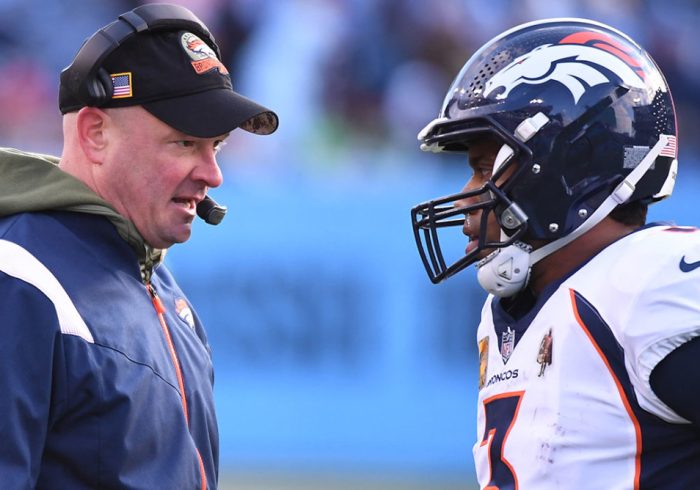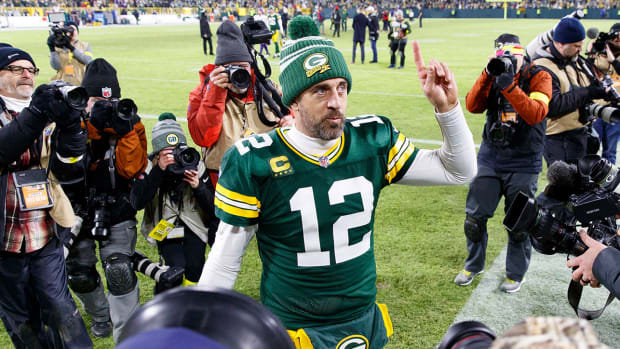You’ve seen signs of it already this year. In Indianapolis, after Jim Irsay fired Frank Reich. In Carolina, after David Tepper fired Matt Rhule. And especially in Denver, after CEO Greg Penner, who’s leading the Waltons’ ownership of the Broncos, announced that first-year head Nathaniel Hackett was being let go.
In 2023, NFL owners are out front.
In the past, we’ve seen coach and GM searches farmed out to glorified headhunters (the search firms) or front-office types, only coming back to the bosses to be rubber-stamped ahead of the introductory press conferences.
But, this year—with coach openings already in those three locales, and more coach and GM vacancies coming over the week—won’t be like that at all. Indeed, in Indy and Denver, the incumbent GMs rode sidecar to the owners at pressers announcing their coaches’ dismissal, and in Carolina, they skipped right to the first press conference for interim coach Steve Wilks.
What that indicates is what’s probably coming, and that’s owners having a heavy hand in the direction of their franchises going forward. It’s something one NFC GM had discussed with his agent a few weeks back, with the agent saying he thinks it’ll lead to a trend from college football last year spilling over into pro football this year.
“I think you’re right [that owners will be more involved],” the GM said. “Me and [my agent] had this conversation last year during the cycle with the college jobs, and he told me—They’re going with known commodities. They want to see demonstrated success. They don’t want to take risk.
“So for me, when I watched that Denver press conference, and I see they’ve had a couple first-time guys that didn’t work, and I see the owner taking an active role? They’re gonna go with someone who’s done it. It’s like with Carolina, they took a guy from college, he’s goes to the NFL and it didn’t work. They’re gonna wanna have someone who’s had success. They’re not gonna wanna take risks.”
And that leads into my 14th annual Future GMs list.
Generally, the list is full of people who are rising through the ranks, and this year is no exception. That, really, is the basis of this list.
But is it possible that this year, with however many GM openings pop up, just like the agent forecast for the coaching side, owners try to avoid the downside of projecting someone into the top role, and opt for someone more experienced? Absolutely. Titans GM Jon Robinson most certainly would be one name in that vein.
Could someone look at former Texans GM Brian Gaine, and the role he’s played in Buffalo, and what’s happened to Houston since Gaine was fired, and take a swing? Sure. Could former Colts GM Ryan Grigson get reevaluated, having worked in Seattle, Cleveland and now Minnesota since leaving Indy? Yes. Could someone look at former Falcons GM Thomas Dimitroff’s body of work and be intrigued? I think so. Would former Chiefs GM Scott Pioli fit in Tennessee because of his background with Mike Vrabel? Maybe. And is it possible that former Jags GM Dave Caldwell’s work in Philly helps people see him in a different light? I could see it.
Most of these people aren’t on the list, but I have Robinson on to be representative of that group, and I do think a couple could get a crack at jobs if they open up. Likewise, there are some lead negotiators/cap managers that might be on this list (the Chiefs’ Brandt Tilis, the Eagles’ Jake Rosenberg, the Bucs’ Mike Greenberg, the Rams’ Tony Pastoors) in a year when I thought owners might work a little further outside the box. Then, as usual, you have people such as Broncos assistant GM Darren Mougey who are on a GM track, but are with teams on hard times.
So with that as a preamble, here are the 25 execs I settled on for this year’s list.
Cowden, the VP of player personnel in Tennessee, is known as a strong talent evaluator.
George Walker IV / Tennessean.com / USA TODAY NETWORK
Mike Borgonzi, Chiefs assistant GM: The former Ivy League fullback has been Brett Veach’s right-hand man since Veach became GM, and you could argue the Kansas City front office has had as impressive a couple of offseasons as anyone—it got significantly younger on defense and found a way to withstand the departure of Tyreek Hill. Still in his early 40s, Borgonzi has learned both the Bill Belichick (working for Pioli for four years) and Andy Reid personnel systems, so there are an array of coaches he’d fit.
Chad Brinker, Packers personnel/football administration executive: Brinker’s been groomed as GM Russ Ball’s heir apparent in Green Bay, and maybe that winds up being his path. But with owners taking a more active role in shaping their football operations, you’d think the Northwestern MBA’s varied executive experience would be a draw. He’s worked on scouting, the salary cap and even with team president/CEO Mark Murphy and COO Ed Policy on the Packers’ business side. Brinker, to me, is probably the top name on Green Bay’s flow chart now, with top personnel men Richmond Williams and Jon-Eric Sullivan two more to watch.
Trey Brown, Bengals senior personnel executive: You might remember Brown from the Microsoft commercials a few years back. Well, I’m not sure that helped him, from a career perspective, but the 37-year-old has reemerged as a top candidate with experience having scouted for the Patriots and Eagles, and now having helped build what looks like it’ll be a perennial power in Cincinnati. Brown also did one-year stops as a top executive in the AAF and XFL, which gave him decision-making experience.
Ran Carthon, 49ers director of player personnel: Carthon interviewed for the Giants, Bears and Steelers jobs last year, and helped build winners with the Falcons, Rams and now the Niners. Along the way, the 41-year-old former NFL running back, who played with Peyton Manning in Indy, has worked for some of the league’s most forward-thinking personnel departments, while maintaining roots in old-school scouting as a second-generation NFL guy.
Glenn Cook, Browns assistant GM: The former University of Miami linebacker interviewed for the Vikings’ and Bears’ openings last year, and despite Cleveland’s uneven year is a name you’ll continue to hear connected to jobs because of the reputation he has in scouting circles. Cook learned the business under executives Ted Thompson and Bill Polian, and having worked in an analytically sound organization under Browns GM Andrew Berry should help him with owners.
Ryan Cowden, Titans VP of player personnel: He’s led the team’s scouting department in the aftermath of the shocking firing of his old boss, Jon Robinson, who initially brought him to Tennessee from Carolina in 2016. Cowden interviewed for the Giants’ job last year, and twice for the Steelers’ job, and will be a candidate for the full-time role in Tennessee after the Titans’ season ends. His background, before getting to Nashville, was primarily in college scouting, and he has a strong reputation as an evaluator.
Ian Cunningham, Bears assistant GM: Chicago hasn’t had a great year, but Cunningham’s very clearly viewed as a future GM—if a year or two away. He learned under Ozzie Newsome in Baltimore, and rose there to become Southeast area scout (Newsome views that role as a big one organizationally), then helped to rework the Eagles’ roster as their college scouting director, eventually becoming director of player personnel before jumping to the Bears last winter.
Watch the NFL with fuboTV. Start your free trial today.
Ed Dodds, Colts assistant GM: Indy’s not having the best year—if they were, Dodds would be one of the most prominent names on this list, and the Colts’ well-respected No. 3, Morocco Brown, would probably be on it, too. As it is, Dodds is one of the NFL’s most revered evaluators, an old-school, straightforward scout who also happened to help build Indy’s technology. There’s also a strong connection to Jim Harbaugh here (Dodds was seen as the Harbaugh GM when he interviewed in Las Vegas last year), which could be a factor in the Colts’ pursuing Harbaugh.
Terrance Gray, Bills director of player personnel: The next one in GM Brandon Beane’s scouting pipeline, Gray came aboard in 2017 and has steadily risen through the ranks in Buffalo. Gray worked at the league office and for the Chiefs in his early years, before an 11-year run scouting for Rick Spielman in Minnesota. Gray may still be a year or two away. But the success his old friend Joe Schoen has had early with the Giants won’t hurt his candidacy.
Alec Halaby, Eagles assistant GM: Most analytics-connected GM hires, to this point, have been hybrid types—Cleveland’s Andrew Berry, a former pro scout and Harvard football player, is a good example. That’s not Halaby. His background is rooted in analytics, so tabbing him to run a football operation would be a step decidedly away from the norm. I don’t think it’s likely, yet. But given the Eagles’ success, and owners’ desire for forward thinking, I certainly wouldn’t rule it out.
Quentin Harris and Adrian Wilson, Cardinals VPs: Both interviewed for GM jobs last year, and I think there’s a pretty decent chance Cardinals owner Michael Bidwill officially elevates both in a sort of co-general manager setup. For what it’s worth, the two scouted the Peach Bowl together last week while in town for Arizona’s game against the Falcons.
Joe Hortiz, Ravens director of player personnel: Hortiz has long been one of the best college scouts in the league, and has worked his way through the Ravens organization the same way that guys such as Jets GM Joe Douglas and Baltimore GM Eric DeCosta did. He did well in interviewing with the Giants last year, and has diversified his résumé to do more work on the pro side and in team building since DeCosta took over. The Ravens being perhaps the league’s most technologically advanced operation doesn’t hurt, either.
Jeff Ireland, Saints assistant GM: Ireland’s long been deserving of a second crack at being a GM, having built an impressive Saints roster. And where GM Mickey Loomis’s aggression in moving draft capital has narrowed the margin for error in getting things right in the draft, Ireland’s been top-notch in evaluation to validate the approach. If Sean Payton winds up returning to coach, my sense is Ireland would be the guy (along with potentially Atlanta’s Ryan Pace) he’d want as his GM.
Will McClay, Cowboys VP of player personnel: McClay is, in a lot of ways, right at the top of this list. But the Joneses have taken care of him, and he has family in Dallas, and he, in some respects, already acts as GM for the Cowboys. This year, the team’s depth in withstanding injuries served as another reminder of how McClay and his department have continually fielded top-shelf rosters. So, he probably won’t go … but it wouldn’t hurt to ask.
Dan Morgan, Panthers assistant GM: This is a little tricky, just because Carolina hasn’t won since Morgan got there a year and a half ago. That said, Morgan had a hand in building a powerhouse in Buffalo, and the Bills tried to get him back after losing Schoen last year to the Giants. He also was a piece of the puzzle for a championship team in Seattle. Add that to his experience as a Pro Bowl player, and Morgan will be attractive to some, despite a lack of recent success.
Nagy has plenty of NFL experience and has run the Senior Bowl for some time now.
Gregg Pachkowski/AP
Jim Nagy, Senior Bowl executive director: The Eagles did their homework on hiring Nagy last year, and his executive experience running the sport’s premier college all-star game would be pretty valuable to have in the GM’s city. He also has a solid reputation as an evaluator from his days with the Patriots, Chiefs and Seahawks.
Monti Ossenfort, Titans director of player personnel: Ossenfort will be a consideration in Tennessee, given his work there the past couple of years, and also how his Patriots background dovetails with Mike Vrabel’s. He’s interviewed for GM spots with the Panthers, Giants and Bears, and blends an old-school scout’s résumé with high-level skill in preparation and organization for a guy who spent most of his career outside of an office.
Adam Peters, 49ers assistant GM: Peters would be a top name if this was a ranking—he was runner-up for the Giants’ job last year, and the Maras raved about how the Niners exec was like Schoen—very complete as a personnel man, with command over every level of a football operation. Peters has rings from New England and Denver, and has had a presence in helping put together what’s arguably the best roster in football.
Cat Raîche, Browns assistant GM: Raiche is the highest-ranking female football executive ever, and has rounded out her résumé the past few years. In Philly, as VP of football ops, she helped build the team’s in-house analytics system. In Cleveland, she has staff reporting to her and has shown an ability to manage people. She was also an assistant GM in the CFL, which gives her a good volume of management experience. The Vikings interviewed her last year, and my guess would be more interviews are coming.
Jon Robinson, former Titans GM: A lot of people are still befuddled by his dismissal. The roster he built in Nashville was tough and had real identity. Yes, he had his first-round missteps, but mostly made up for them by landing guys such as Derrick Henry, Kevin Byard, and A.J. Brown outside of Day 1. And, again, if you’re an owner looking for experience, guys such as Robinson, Gaine, Caldwell and Dimitroff come with that.
Kyle Smith, Falcons VP of player personnel: Having worked in Washington, Smith, the 38-year-old son of former Chargers GM A.J. Smith, was poached by Terry Fontenot two years ago to be the new Atlanta GM’s top assistant, and others have come in and tried to poach Smith from Fontenot. A very well-respected evaluator who went from scout to college director to VP of player personnel in D.C. in 10 years, Smith was considered a strong candidate to replace John Lynch in San Francisco, had Lynch gone to TV last year—which speaks to the respect former Washington offensive coordinator Kyle Shanahan has for his work.
Jon Spytek, Buccaneers VP of player personnel: Spytek interviewed for the Raiders and Vikings jobs last year, and made it to the final round of interviews with the Steelers. And based on the job he’s done in helping build the roster that attracted Tom Brady to Tampa Bay in 2020, then won a championship that year, as Jason Licht’s No. 2, it’s not hard to see why teams are starting to get hot on him a little bit. Spytek’s had experience, too, working for Reid in Philly and John Elway in Denver, and he won a title with the Broncos.
Duke Tobin, Bengals director of player personnel: Tobin is a little like McClay—in some ways, already a GM working in an organization where the owner has the GM title. There’s little denying what Cincinnati has now on its roster, and its the second time he’s replaced a long-term quarterback and built a sustained winner. I don’t think he’s leaving the Bengals. But, like I said on McClay, it can’t hurt to ask.
Andy Weidl, Steelers assistant GM: Another one who was part of building those Eagles teams (Giants assistant GM Brandon Brown is one more who is right on the edge of making it on to the list), Weidl came up in Baltimore with Douglas and was very popular and respected in the Ravens organization. When Douglas left Philly in 2019, Weidl assumed the top role in scouting, and landed in Pittsburgh as Omar Khan’s top scout after some reshuffling with both teams. Weidl’s an old-school type, whose experience with the Ravens and Eagles gave him a very forward-thinking outlook.
Eliot Wolf, Patriots director of scouting: Wolf was a finalist for the Vikings’ and Bears’ jobs last year, and New England is the third organization within which he has risen to the top lieutenant role in scouting (he was director of football operations in Green Bay and assistant GM in Cleveland). Through that experience, he’s had influence over just about every facet of a football operation. And in working in New England, he’s helped the Patriots bounce back from a draft slump the past couple of years, and hit for a high average in free agency.



